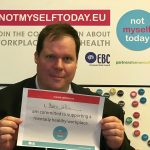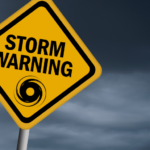COVID-19 is taking a toll on the mental health of people. The road to recovery risks worsening the stress epidemic Europe has been in for years.

The Eurocadres blog Santa came early to whistleblowers. Now the work starts. 16.12.2019BlogWhistleblowing It is official. The Whistleblower Protection Directive is now reality. On 16 December 2019 the directive entered…

50 years ago today, in the early morning of June 28th, police raided the Stonewall inn in Greenwich village, New York. This day the LGBT community fought back.

Life-ling learning is a necessity, if workers are to remain competitive in today’s high-skilled job markets. A just transition will require the development of reskilling and upskilling programmes.

Those who report corruption, criminal acts and breaches of public trust must be protected, writes Martin Jefflén, who calls for lowering the barriers when it comes to reporting wrongdoing in the corporate sphere.

The Eurocadres blog Happy Birthday! 24.2.2018General On 24 February 1993 in Luxemburg Eurocadres was created. The European social dialogue was just being launched through the Maastricht treaty, and trade unions…

On 17 November the European Pillar of Social Rights will be proclaimed. But is it enough as a response to call from trade unions for a more Social Europe?

Mental health in the workplace is the theme of the World Mental Health Day 2017, observed on 10 October. To focus on the workplace is key to combat the global rise of mental health disorders – many of which are caused by stress.

A strike today demanding the end to unpaid internships clearly shows that there is need for better conditions for interns. Internships should be paid.

On 17 October 2016, the platform that Eurocadres took the initiative to create on EU-wide whistleblower protection was launched. 48 organisations participated from the start, and more are joining. The case for why whistleblowers should be protected is clear.

Psychosocial health risks and mental health is a big challenge. The European Commission must change the main directive on occupational health and safety.

Rather than a development creating more obstacles for Transatlantic mobility the EU should work for making it easier to work and travel across the pond.

The social partners need to take on the issue of mental health at work. Mental disorders are very common in Europe and are a major burden on society. There is also a need to clarify in legislation that occupational health and safety at work is not only about the physical workplace.

40% of the EU population have insufficient digital skills. 18% have still never used the internet. 2020 there will be an estimate of 825.000 unfilled vacancies for ICT professionals.

